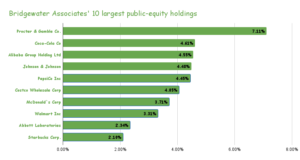“Lean In,” the blockbuster book by Sheryl Sandberg that helped spawn a rising generation of “girlbosses,” turns 10 this year. If the former Facebook COO, now billionaire philanthropist and founder of Leanin.org, is planning to celebrate, she may have trouble finding younger women to join the party.
Officially titled “Lean In: Women, Work and the Will to Lead,” Sanberg’s opus was less a book than a manifesto for launching a new feminist revolution. Too few women were in leadership positions, Sandberg proclaimed, and it wasn’t only because of sexism as most feminists insisted. Women were undermining themselves.
Don’t apologize for your ambitions, she lectured; aim for the top; ask for that raise. Sandberg famously began her stint at Facebook when she had a 6-month-old and a 2-year-old. That needn’t get in the way of leaning in. She urged her readers to bring their whole self to work, or in her words, “Don’t leave before you leave.”

Pretty without being va-voom, charismatic but accessible, oozing smarts and competence, Sandberg had so many fans she became the corporate version of Beyoncé. “Lean In” planted itself atop the bestseller lists for more than a year (five years after its release, it had sold 4.2 million copies). Media editors and producers lined up for worshipful interviews with Sandberg who had a remarkable genius for hashtags.
Women flocked to “lean-in circles” where they shared their frustrations and doubts with other strivers. Schools, employers – including the Department of Defense – organized their own circles, and not just in the United States. “Lean In” groups meet in Malaysia, Thailand, Mexico, Zimbabwe, to name a few.
Coincidence or not, the years after the book’s publication saw a parade of new women leaders. By 2021 a record 142 women were serving in Congress and 12 will be serving as governors in 2023. The nation now has its first female vice president, first woman on a moon mission, and first woman Treasury secretary, joining a record number of four other women as cabinet members. Ten percent of the Fortune 500 companies are run by women. That may sound unimpressive, but it’s a significant increase over the 6% in 2018.


But a changing zeitgeist has caused significant setbacks for Sandberg and her movement. When Sandberg moved to the COO office at Facebook, she found herself second in command of a company that made lots of its money from Instagram, a website now blamed for messing up the heads of tens of millions young body-hating women. Increasingly, the public realized Facebook‘s promise of “connecting the world” was a euphemism for “connecting the world’s data to advertisers.”
After the 2016 election, Facebook’s reputation took a bigger hit when the company was accused of misinformation and conspiracy theories. Rumors swirled that Sandberg herself had hired a shady company to do oppo research against the company’s detractors. The kindly Mother Superior of leadership coaches was looking more and more like just another ruthless profit-chaser.
Nor is Sandberg the only lean-inner to lose her corporate gloss. High profile girlbosses have been forced to turn their backs on the C-suite. Audrey Gelman, co-founder of The Wing, a posher-than-thou, all-women co-working space valued at $365 million at its peak, left the company amid charges of racism and employee abuse; the Wing quietly shuttered last year.


Sophia Amoruso, founder of Nasty Gal brand which rose from an Etsy virtual storefront in 2014 to $100-million national brand, actually penned a bestseller with the cheeky title “#Girlboss,” but in short order filed for Chapter 11 bankruptcy. Last year, Amoruso instructed her Twitter followers: “please stop using the word girlboss thank you.”
“Lean In” was imbued with a spirit of American can-do-ism and self-discipline. That may have appealed to millennial women, but it’s far from the Generation Z vibe. Gallup reports that of all age groups, Zoomers are the most disengaged from their work. One in three office workers under 40 admits to “quiet quitting.” Employers report that, when interviewed, this generation shows less interest in opportunities for promotion and leadership than in work-life balance and better personal well-being.
A report from McKinsey & Company found that 42% of women said they were always or almost always burned out and are leading the charge for more remote work. Though these trends started before 2020, COVID surely added to workers’ detachment. It’s harder to lean in when you are locking down.



Adding to disillusion with the lean-in credo is Gen Z’s mistrust of capitalism. Polls reveal a generation that looks more favorably on socialism than capitalism, now blamed for climate change and the housing crisis. Rep. Alexandria Ocasio-Cortez is their idea of a heroine. The hashtag “eat the rich” litters their social-media feeds. Sandberg emphasized individual grit; this generation sees workers as embattled by a corrupt, uncaring system.
Their skepticism may be understandable. After all, if millennials had Sandberg as their celebrity girlboss; Generation Z has Elizabeth Holmes.
Kay S. Hymowitz is the William E. Simon Fellow at the Manhattan Institute and a contributing editor of City Journal.















